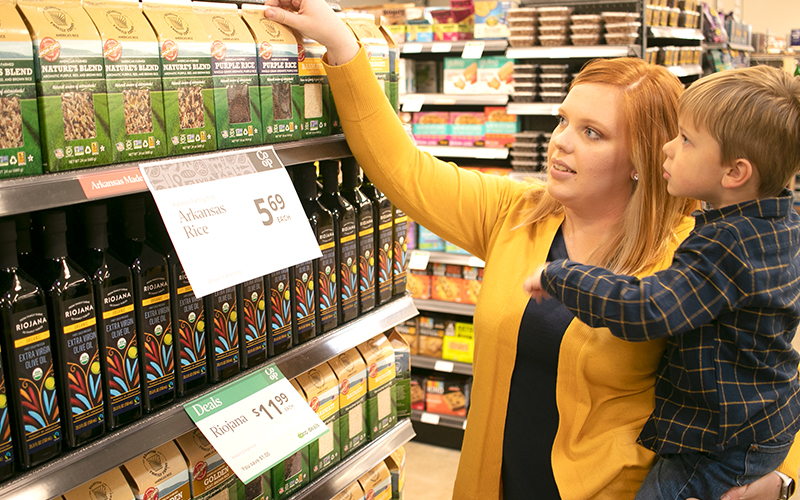
Factors such as nutrition, population growth, and changing climates must be taken into consideration, knowing that our diets not only affect these elements but are also effected by them.
Malnutrition and food scarcity are very real threats and both food producers and consumers have a responsibility to be knowledgeable and proactive about their individual roles in a much larger world system.
As a food producer, we at Ralston Family Farms, make the commitment to:
Use our resources wisely
Invest in technology
Make long-term decisions
But what can consumers do to make a difference in a seemingly too big problem?
The answer lies in the old adage... How do you eat an elephant? One bite at a time.
Strategic choices within a sphere of influence seem to be the answer to most of the world's dilemmas.
Environmentalists and nutritionists recommend the switch from an ultra-processed, fast-food mentality to one that prioritizes plant-based and sustainable ingredients, defining these diets as "those with low environmental impacts which contribute to food and nutrition security and to healthy life for present and future generations. 'These diets are protective and respectful of biodiversity and ecosystems, culturally acceptable, accessible, economically fair and affordable, nutritionally adequate, and safe and healthy, while optimizing natural and human resources (FAO and Bioversity 2012)."
Scrolling through Instagram and other social media will prove that these are the exact food choices now considered "on trend." They are not only good for the world food system, but are good for the individual.
Three actions you can take to make a difference today:
Think local: This has become easier and easier thanks to additions of local sections in grocery stores and online venues such as locallygrown.net.
Purchase only what you will use: Food waste happens to us all. In order to stop the cycle we must be responsible in the amounts we buy and the use of those resources. What your parents said is true, there really is a child starving somewhere.
Include more plant based items in your menu: You may not want to go all-out vegan, but research does suggest plant based proteins are not only agriculturally sustainable, but are healthier alternatives to meat based diets.
In this day and age the individual has more power to impact than ever before and it is up to us to decide what is important, press in, and do something about it.
Okay fellow consumer, we've got this!
Sources:
Sustainable Diets for Healthy People and a Healthy Planet. United Nations System Standing Committee on Nutrition, 2017, Sustainable Diets for Healthy People and a Healthy Planet, www.unscn.org/uploads/web/news/document/Climate-Nutrition-Paper-EN-WEB.pdf.
FAO and Bioversity (2012b). Sustainable Diets and Biodiversity. Burlingame B, Dernini S, Rosen R, Meade B, Shapouri S, D’Souza A, Rada N (2012). USDA International Food Security Assessment 2012-22. US Department of Agriculture: Washington DC. http://www. ers.usda.gov/publications/gfa-food-security-assessmentsituation-and-outlook/gfa23.aspx.